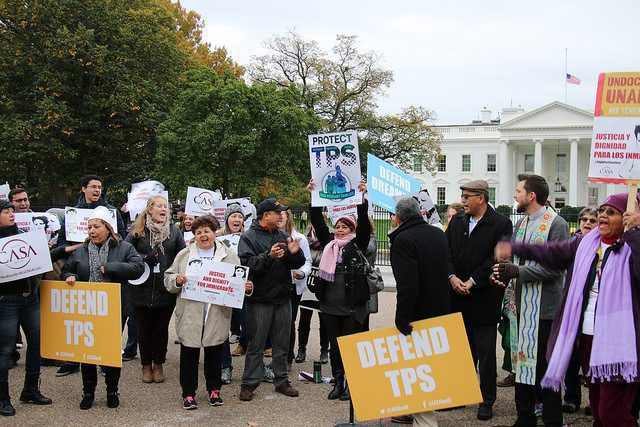DHS Should Extend Protections Until Congress Passes Legislation
WASHINGTON _ Statement regarding tonight’s Washington Post story stating that the State Department sent a letter to Homeland Security officials saying that more than 300,000 Central Americans and Haitians living in the United States no longer need Temporary Protective Status.
“The fact the Hondurans and Haitians along with other Central Americans, who have been living in this country working, buying homes, and raising families for close to two decades, will just be kicked out into countries with no infrastructure to be able to absorb their return, is the most heartless and barbarian action the Trump administration has taken since taking office. Why is this administration hell bent on destroying families when these immigrants have been following all the rules and helping to improve their communities’ economies and fulfilling the aspiration of so many who come to this country seeking a better life for their families. Furthermore, to say that Honduras and Haiti are two places where life is now back to normal is to ignore facts, which is something this administration is very good at doing,” said CASA’s Executive Director Gustavo Torres.
Conditions merit that DHS extend TPS protection until Congress can work out a permanent solution for all TPS beneficiaries living in this country. Monday is the deadline for DHS to announce the fate of Hondurans and Nicaraguans, whose protections could expire in January.
These are the facts on Honduras alone.
In Honduras Casa Alianza reports more than 700 children and youths have died due to violence in 2016.
Honduras has been the most dangerous country in the world per capita for land and environmental defenders, with 123 of these defenders killed since the June 2009 coup and 14 killed in 2016.
According to the Center for Research and Promotion of Human Rights in Honduras, known by its acronym in Spanish as CIPRODEH, 15-20 people are killed in Honduras on a daily basis. Lower violence rates cited by the Honduran and Salvadoran governments are not reflected in the public perception, nor in the daily experiences of child and human rights advocates.
Honduras vacillates between the second and third poorest country in the hemisphere, with many people in precarious housing and at risk from hurricanes, droughts, and floods. CIPRODEH reports that 7 of 10 people live in poverty, and many live in areas with limited access to schools

